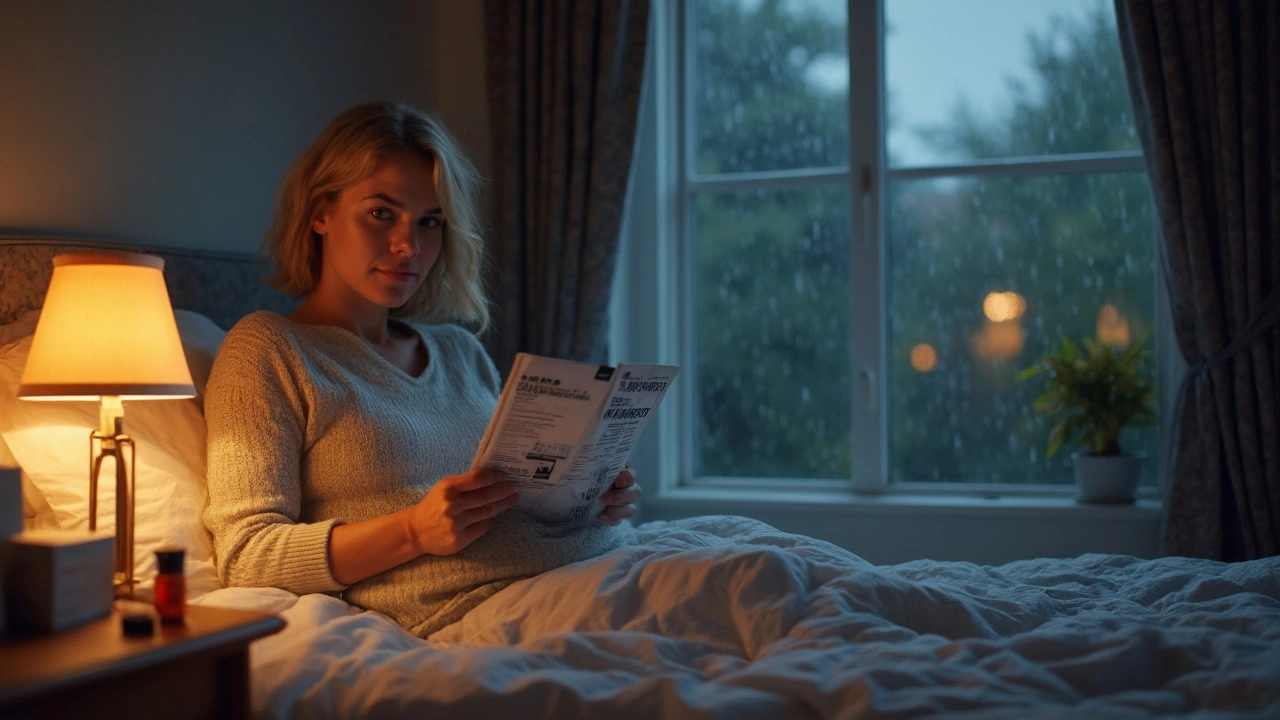Sleeping pills: what they do, which ones work, and how to stay safe
Can a pill really fix sleepless nights? Yes—sometimes. But sleeping pills aren’t a one-size-fits-all fix. This guide helps you pick the right option, understand risks, and use sleep meds without making your nights worse.
Types and how they work
There are three common groups: over-the-counter (OTC) antihistamines, supplements like melatonin, and prescription drugs. OTC antihistamines (diphenhydramine, doxylamine) make you drowsy fast but often cause grogginess the next day. Melatonin helps reset your internal clock—useful for jet lag or shift work—but higher doses don’t always work better. Prescription drugs fall into benzodiazepines (rarely used long-term), non-benzodiazepine “Z-drugs” (zolpidem, zaleplon, eszopiclone), and newer options like orexin antagonists. Each acts on different brain systems, so effectiveness and side effects vary.
Pick based on your problem: trouble falling asleep, staying asleep, or waking too early. Zaleplon works fast for falling asleep. Eszopiclone lasts longer for staying asleep. Melatonin is better for timing problems, not deep insomnia.
Safe use and quick tips
Use sleeping pills short-term whenever possible—think days to a few weeks. Long-term use raises risks: dependence, tolerance (needing more to get the same effect), memory gaps, and daytime grogginess. For most people, combining a short course of medication with behavior changes gives the best results.
Before you take anything, check these points: are you on other meds that can interact (like opioids, antidepressants, or alcohol)? Do you have sleep apnea, COPD, or liver disease? These conditions can make sleeping pills dangerous. If you snore heavily or feel very sleepy in daytime, talk to a doctor about sleep apnea testing first.
Practical tips: start at the lowest effective dose, take pills only when you can get a full night’s sleep, don’t mix with alcohol, and avoid driving or heavy machinery until you know how a drug affects you. For older adults, many sleeping pills are best avoided—fall risk and prolonged drowsiness are real concerns.
Want to cut back? Try sleep hygiene first: consistent bedtime, reduce screens 60 minutes before bed, limit caffeine after noon, dim lights at night, and get daylight exposure in the morning. Cognitive Behavioral Therapy for Insomnia (CBT-I) is often more effective long-term than pills and is worth asking your clinician about.
If pills aren’t working after a few weeks, or you notice memory issues, strange behaviors (sleepwalking, eating while asleep), or worsening daytime sleepiness, stop and see your doctor. A good sleep plan combines safe meds when needed, clear habits, and professional care when problems persist.
- April 16, 2025
- Comments 6
- Medications and Supplements

